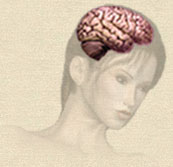A Few Words About Depression
What is depression and how does it come about?
We are encouraged to think of depression primarily as a chemical imbalance to be treated medically, at its chemical root.
Indeed depression does have a chemical profile but it is not about chemistry.
It is, in clinical experience, about unfulfilled longing, frustrated ambitions, it is about not being loved, the lack of connectedness or lack of affirmation, it is about feeling alone in a world filled with people.
It results from the desperation about our continued inability to effect change in areas most profoundly impinging on our daily lives. It is the belief that we will grow old without ever having been truly loved and that we will die being neither long nor well remembered.
Depression is about not mattering enough to those who matter to us.
Often and paradoxically, people despair when they have accomplished life long goals, when they have been rewarded for their efforts, when they have surmounted lifelong obstacles, when their dreams have come true. It is at those times when all the obstacles we have always been prepared for are suddenly withdrawn from the psychic field that despair can descend. And this is not just about brain about chemistry. It often comes from behind the curtain that has always fluttered while we chose not to pay it attention.
The playwright gets it right….
J Saunders quoted by Tom Stoppard in the New York Review of Books Sept. 13 1999
|





